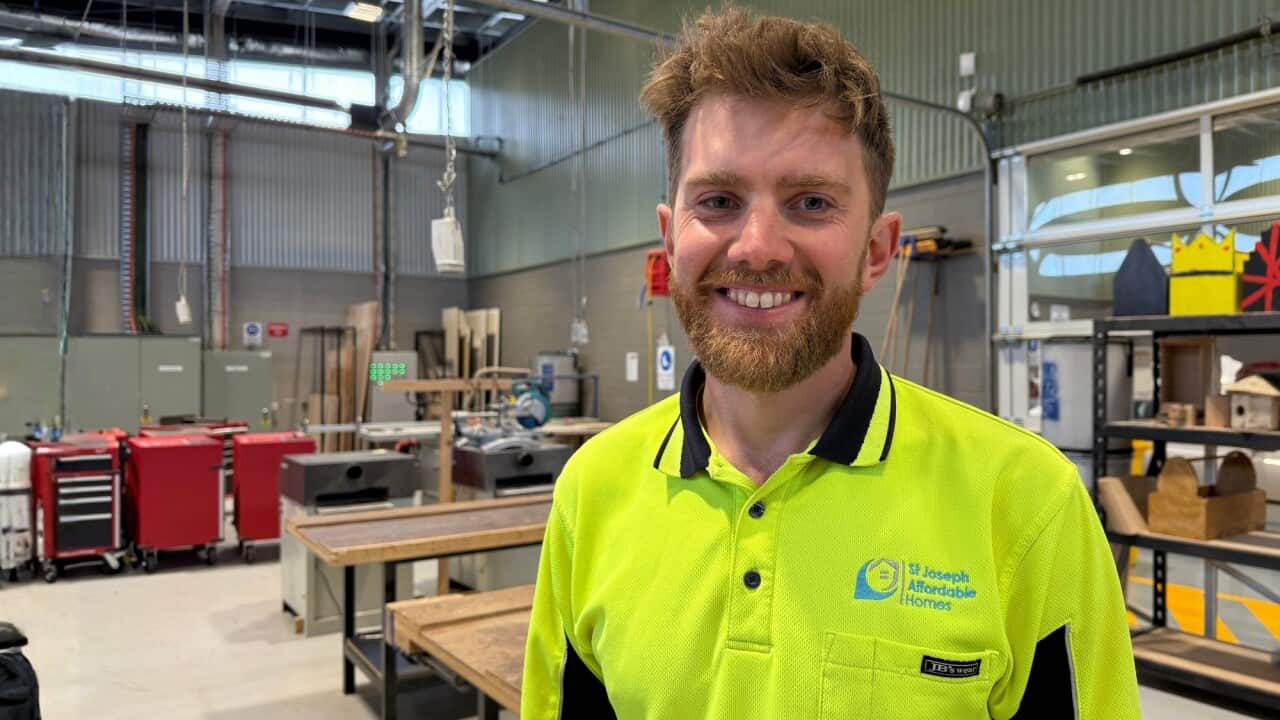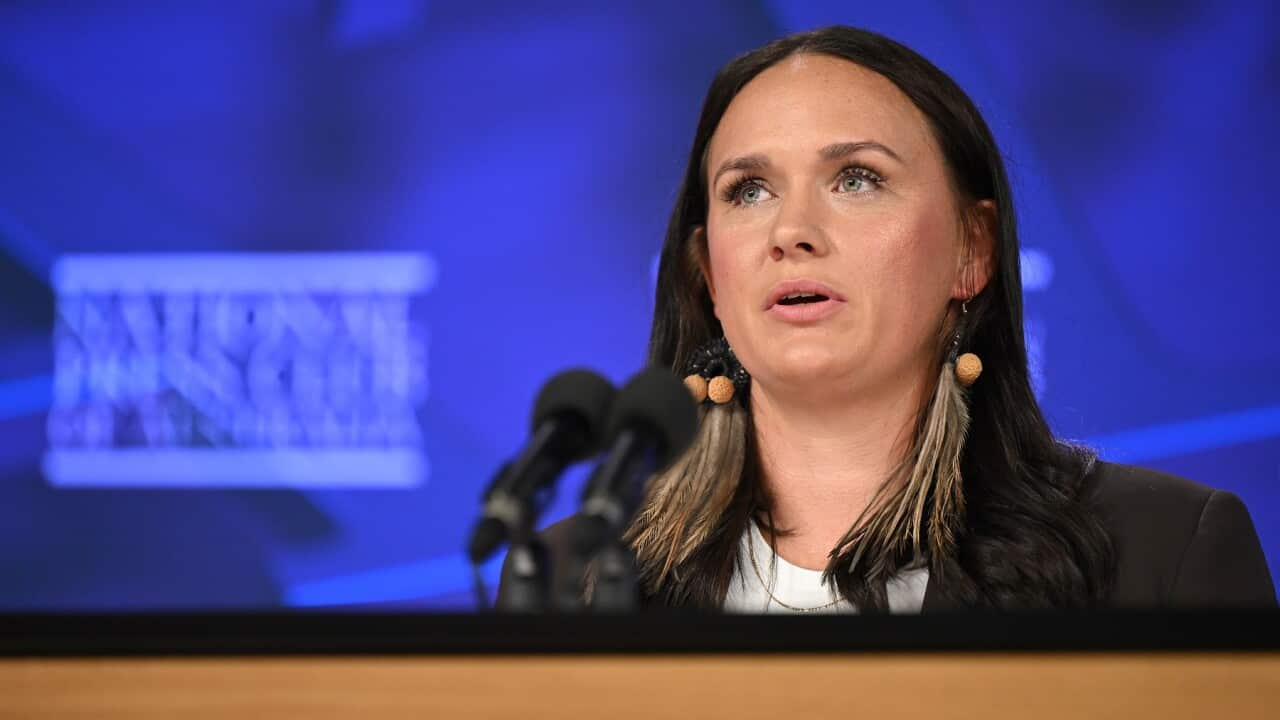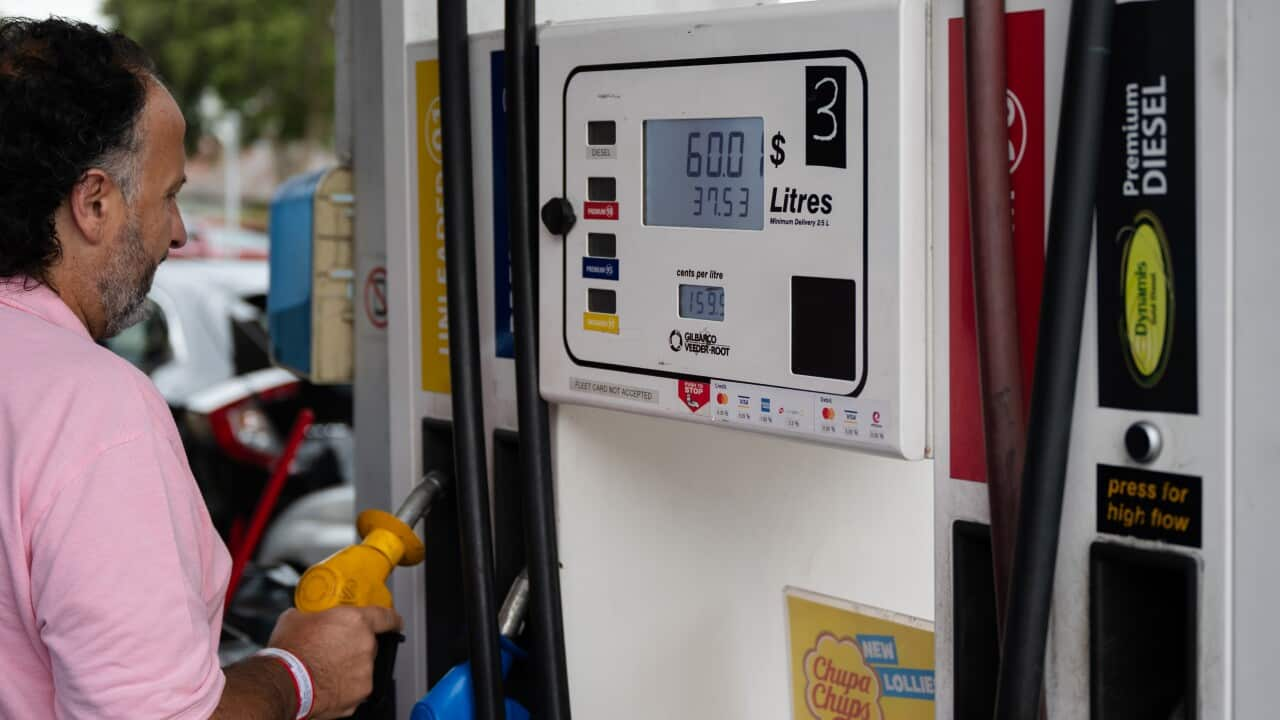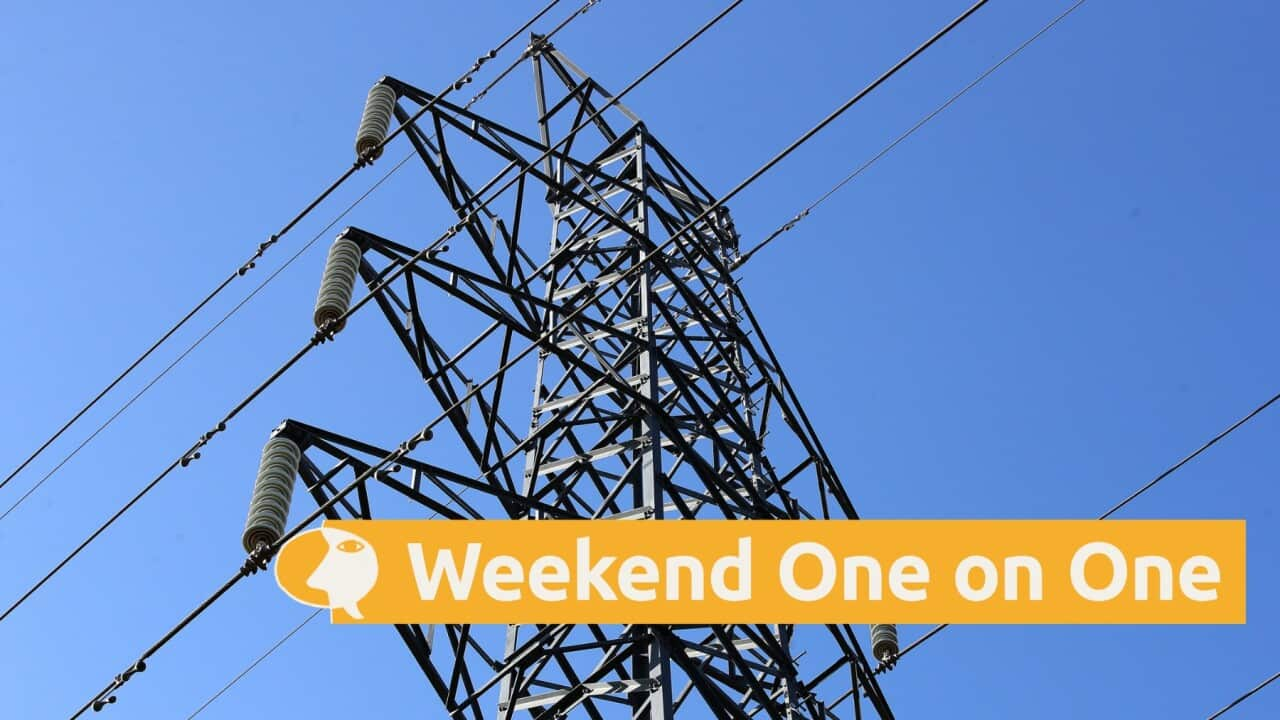Listen to Australian and world news, and follow trending topics with SBS News Podcasts.
Second-year apprentice carpenter, Cedrick Smith, is confident on the tools.
(Sound of a drop saw)
"When I first came to the actual St Joseph's construction sites, I was doing the slabs. So we literally did the house from the slab up, all the way to fitout. It is very rewarding."
Before his apprenticeship he took part in a free work readiness program through Build Up Tassie, where he worked with a language literacy and numeracy coach.
"(We went through) things that would simplify calculations at work specific to carpentry. Nothing crazy. So like a lot of the older generation would have learnt, they would memorised these things like times tables to make it simpler because a lot of us young people we never memorise this sort of stuff and it does help on the job site, it really does help."
The lessons were directly related to his work.
"Things like multiples of three, that's one we worked on a lot because a lot of building products come in multiples of three so that’s very useful to know."
He says working one-on-one has been impactful.
"She gave me the confidence to realise that I've already got the skills I've just got to work on them a bit, just got to make them work for me."
Fleur McConnon is the language, literacy and numeracy Coast for Build Up Tassie.
She says the program’s approach is what makes it successful.
"The beauty of our program is it's a small group. Everyone's known. No one's flying under the radar. Everyone is known, and everyone is being picked up and swept along at their own pace."
She says it’s rewarding work.
"Seeing someone realise that, yes, I can do this just watching their confidence grow throughout the program and seeing the possibilities the future possibilities open and expand, is the best part of the job."
Grant funding for the position comes through 26Ten, a Tasmanian program working to lift adult literacy and numeracy skills.
Senior literacy advisor at Libraries Tasmania, Iona Johnson, says 26TeN has worked with more than 4,000 learners since it started in 2012.
"People generally come in with an idea of what it is that they're wanting to achieve in their life, and realising that literacy has kind of got in the way of them being able to achieve that. So they generally have some life goals that you know will tailor that learning around. So it might be about wanting to learn to read to their child. It might be about, you know, wanting to successfully pass a white card or a first aid certificate or do something towards repositioning themselves in terms of work."
The data on adult literacy and numeracy levels comes from the OECD, under the Programme for the International Assessment of Adult Competences, or PIAAC.
The figures show as many as one-in-five Australians have low levels of literacy or numeracy.
"Approximately 14 per cent of people have literacy skill levels below level two, so at much lower levels, who are likely to experience a significant gap between what they're able to do and their ability to engage in everyday life. 21 per cent of people have that gap in terms of their numeracy skills."
These figures were released more than 10 years ago, with those in the sector keen for an update to see what has – or hasn’t – changed.
"So the last survey was done in 2012 what the results came out in 2012 which is quite a long time now. It's very old data."
Australia temporarily withdrew from PIAAC but has since re-joined, with fresh data expected in 2029.
Jobs and Skills Australia is also conducting a national survey of adult literacy and numeracy skills, with those results due in late 2026.
For Cedrick Smith, a little help has opened up a lifelong career.
"It could take me a lot of places. There's unrelated fields where they need work that involves a carpentry background. I'm not too sure yet, I'm sort of open to what's going to come next. I'll sort of wait and see. (It could involve) you know having my own business maybe."
(Sound of a saw)
Carving a path forward.













